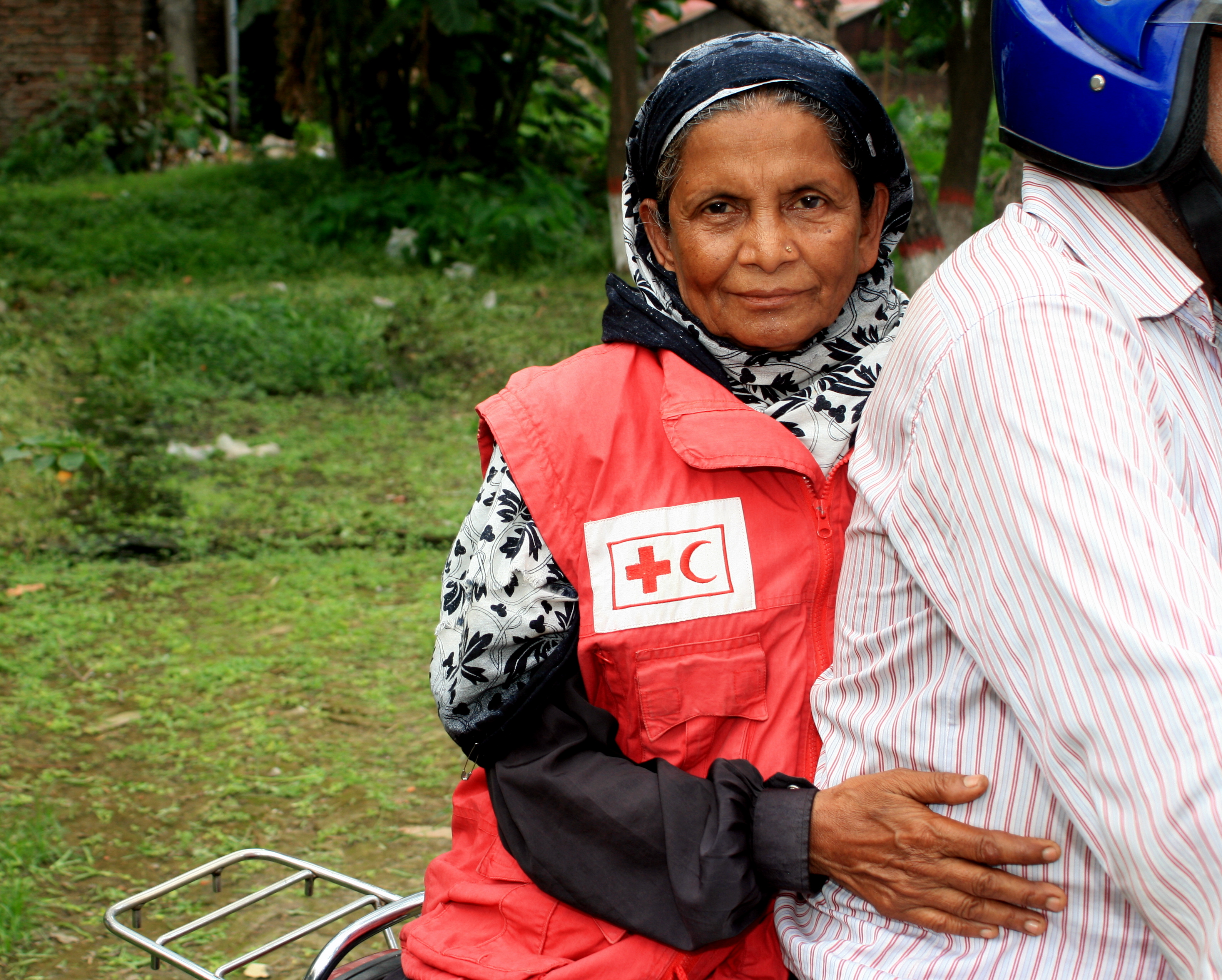
I should start by saying I’m a sucker for little old ladies. As a kid, my sister and I would visit a local nursing home a few times a month as part of a school youth group. One lady, always clad in a neon orange knitted beanie, would spend hours talking to us, her face lighting up at our every visit. Every time, without fail, at some point in the conversation she always said, “You go to the school? That’s nice. ” My sister imitates her slow southern drawl perfectly to this day.
So when Mafiza Begum walked into the room, fans blowing full speed in an unsuccessful attempt to temper the Dhaka heat, sat down in front of me and began to tell me her story, my heart immediately jumped. Like I said, I love little old ladies. But as I soon found out, Mafiza’s unassuming stature hides a steeled strength core.
Mafiza is a volunteer with the Bangladesh Red Crescent. I was in Dhaka to see people exactly like her—Red Cross volunteers and beneficiaries that were doing the critical work on the ground. She’s 65 years old but her tragic experiences have added years to her gentle face. At several points during our interview, she stops and silently sobs. Even more than 40 years later, recalling the day that changed everything is difficult.
As a young woman, Mafiza Begum was naïve about disasters. That all changed in 1970 when a cyclone struck her village, killing 30 of her family members and literally washing her 5 month old baby girl off her lap, never to be seen again. “The water took everything,” she tells me, tears streaming down her cheeks.
She spent seven days at sea, clinging for life on the back of a cow’s carcass, snakes and fish swimming around her water-submerged legs. She miraculously survived, and after returning home, began warning others to prevent her tragedy being revisited upon others.
Now as a 20+year volunteer of the Bangladesh Red Crescent’s Cyclone Preparedness Program, she alerts neighbors of upcoming cyclones, often riding on the back of motorcycles to reach remote communities. “If I had gone to a shelter, I would not have lost my daughter,” Mafiza says. “I want people to learn from my life.”
Mafiza is part of a large network of volunteers, paid staff and government officials throughout the country that work using a system of radios and door-to-door visits to alert communities to potential dangers. It’s a well-designed, grassroots system that has proven successful in preventing loss of lives in this cyclone-proned country.
“When a cyclone comes,” Mafiza tells me, “I go to every house; I explain they have to go to a safe shelter. “ She often helps parents carry their children and assists the elderly, even in the drenching rain. Because of her experience, people listen to her. She takes her responsibility very seriously.
As our time together comes to a close, Mafiza reaches out to my hand and squeezes it. “How do you do it?” I ask. “How do you keep going?”
She smiles gently. There is no other choice, she says. “It is my responsibility. I am a poor person. I will always be poor but saving people’s lives is mandatory. Even if I die and 10 people live that is my benefit.”
Like I said, I love little old ladies. But Mafiza is in a class all by herself.
